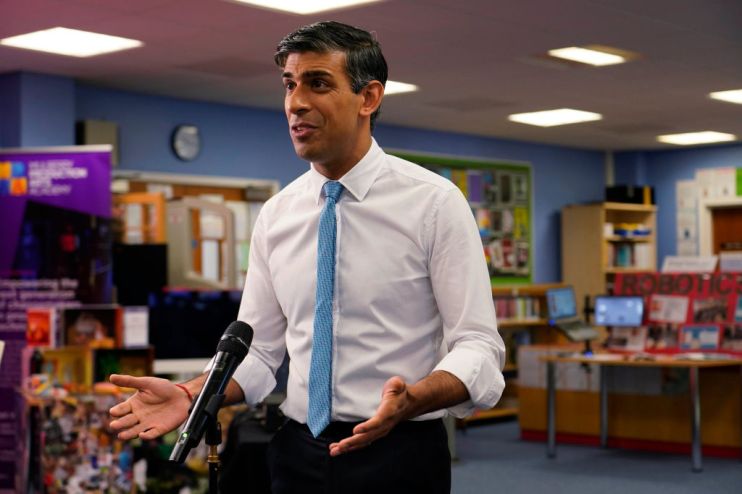Rishi Sunak: 2030 petrol and diesel car sale ban is here to stay

The 2030 ban on the sale of petrol and diesel vehicles will remain as a government policy, Prime Minister Rishi Sunak has said.
Speaking on BBC Radio Scotland’s morning show, Rishi Sunak insisted a ban on “sale of new cars,” has been the policy “for a long time,” and “remains the government’s policy.”
“I’m committed to it, but we will do it in a proportionate and pragmatic way that doesn’t necessarily add burden or cost to families’ bills, particularly at a time when inflation is higher than any of us would have liked,” he added.
The government has faced growing pressure to reaffirm its commitment to what is seen as a key pillar of plans to drive the automotive sector to net-zero.
Sunak has come under fire in the last few weeks for expressing doubts about the plans, with supporters of the policy calling for the Prime Minister to clarify his position.
Cabinet Minister Michael Gove insisted last week that the 2030 goal was “immovable,” after Sunak had told national media that he didn’t want to “hassle” consumers with extra costs amid the cost of living crisis and that any net-zero push had to be done in a “proportionate and pragmatic way.”
It comes amid fresh calls from within the party for a rejig of certain net-zero policies, after Labour’s failure to win the Uxbridge by-election, in part due to some voters’ anger at plans to expand the controversial ULEZ scheme across London.
Former Tory party leader Iain Duncan Smith said this morning that the government should have “another look,” at the plans.
“If we rush to this, what we risk right now is simply becoming even more dependent on China,” he said.
He added: “China is ready to literally flood the market here with cheap electric cars, all their battery companies, which by the way, are many, and they produce far more batteries than the whole of Europe put together… They are going to dump those on us.”
The uncertainty has prompted backlash from EV leaders and campaigners in the automotive sector, who have doubled down on the necessity of the ban for investment in the green transition and hitting targets.
Quentin Willson, founder of FairCharge said: “To have a strong growth agenda, policies need to be firm, and commitments must be kept. Without these policies and regulations, the UK will be faced with just managing the decline of its motor industry.”
Ian Johnston, chair of ChargeUK, the UK’s charging industry trade body, said: “Members have committed over £6 billion to roll out EV infrastructure in all parts of the UK at an unprecedented rate creating good, sustainable jobs, supporting the switch to EVs and thereby reducing emissions and improving air quality for all.
“The phase out of petrol and diesel vehicles from 2030 will be gradual. If government fails to stand firm to its commitments this investment and the supply of EVs entering the market will be at risk,” he added.